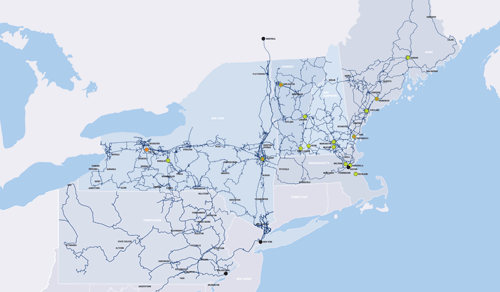Fiber optics have increased the speed and reliability of Internet and telecom connections. Now, digital photonics have emerged as the future of fiber optics because they harness the
power of light to transform the way companies in a wide range of industries do business. Leveraging these new technologies relies on laying down the foundation of a strong optical fiber platform.
The Rise of Digital Photonics
Photonics is the science of creating, controlling, and detecting photons, or particles of light. The benefits of digital photonics extend to both households and big business. Domestically, digital photonics are used when you capture and share photos on your cell phone. Their industrial uses may not be as familiar. Digital Trends reports that over $600 million has been invested in photonics to integrate its capabilities into the manufacturing industry. A consortium of American companies poured $500 million into the photonics industry, while the U.S. government contributed $110 million. Digital photonics have transformed the manufacturing industry by enabling unprecedented levels of precision. With photonic lasers, components can be crafted to a precision measuring in the tens of nanometers. Precision component manufacturing makes the building of miniature sensors and microprocessors possible, but it is also used in the assembly of bigger products like cars and medical devices.
that over $600 million has been invested in photonics to integrate its capabilities into the manufacturing industry. A consortium of American companies poured $500 million into the photonics industry, while the U.S. government contributed $110 million. Digital photonics have transformed the manufacturing industry by enabling unprecedented levels of precision. With photonic lasers, components can be crafted to a precision measuring in the tens of nanometers. Precision component manufacturing makes the building of miniature sensors and microprocessors possible, but it is also used in the assembly of bigger products like cars and medical devices.
Meeting the Demands of Big Data
Through digital photonics, companies can keep up with the expansion of the Internet and the rise of big data. Photonics enhance the ability of fiber optics to send large volumes of information without experiencing bottlenecks. Silicon photonics are used to create transmitters and receivers for fiber optic telecommunications, enabling them to reach further with less signal degradation. Light signals enable faster connections between data centers with the higher bandwidth necessary to accommodate big data volumes.
Photonics also improve the capacity and performance of computer chips by manufacturing smaller and faster chips. Inside these chips, light is used to transmit information, instead of electricity.
Making IoT Possible
Digital photonics are at the heart of many IoT innovations. The sensors, RFID chips, and beacons that are used to collect and transmit IoT information rely on photonics for connectivity.
Smart infrastructures use digital photonics to monitor air quality, as well as to control street lights, traffic signals, and parking locators. In smart homes, photonics can regulate heating and cooling systems and control appliances like toasters, coffee makers, or refrigerators. Digital photonic sensors can even be used to detect forest fires. Self-driving cars are made possible by dozens of sensors that monitor the car’s surroundings.
With the speed and reliability provided by a fiber optic network, vital information from these sensors can be transmitted to your business for processing into real-time, actionable insights.
Improving Healthcare
You’re probably familiar with at least one medical application of photonics: laser eye surgery. The precision and accuracy of photonics enable a surgeon to make microscopic adjustments to the eye.
In the biomedical industry, photonics technology creates portable point-of-care devices that monitor and measure vital signs or scan veins and blood vessels. Photonic sensors analyze blood and medication levels. Imaging devices map areas of cancer and perform brain scans that detect conditions like Alzheimer’s disease.
Once digital photonics collect information about patients, fiber optics provide the connectivity needed to transmit information about their conditions to healthcare providers so they can monitor patient health and provide timely and personalized medical care.
The New Frontiers of Fiber Optics
As technology advances, companies will continue to invest in digital photonics. Researchers will develop new ways to improve photonics’ reliability, precision, and speed. With these improvements on the horizon, the communications industry and companies that rely on fiber optics for connectivity will greatly benefit.
At FirstLight, we are dedicated to staying at the forefront of fiber optic technology. We work to provide the most reliable, scalable, and highest performing fiber optic-based solutions for all types of companies. When you partner with FirstLight, you gain access to the solid fiber optic foundation you need to explore the future of digital photonics.
Find out what the latest in fiber optics technology can do for your business. Reach out to the experts at FirstLight.




















